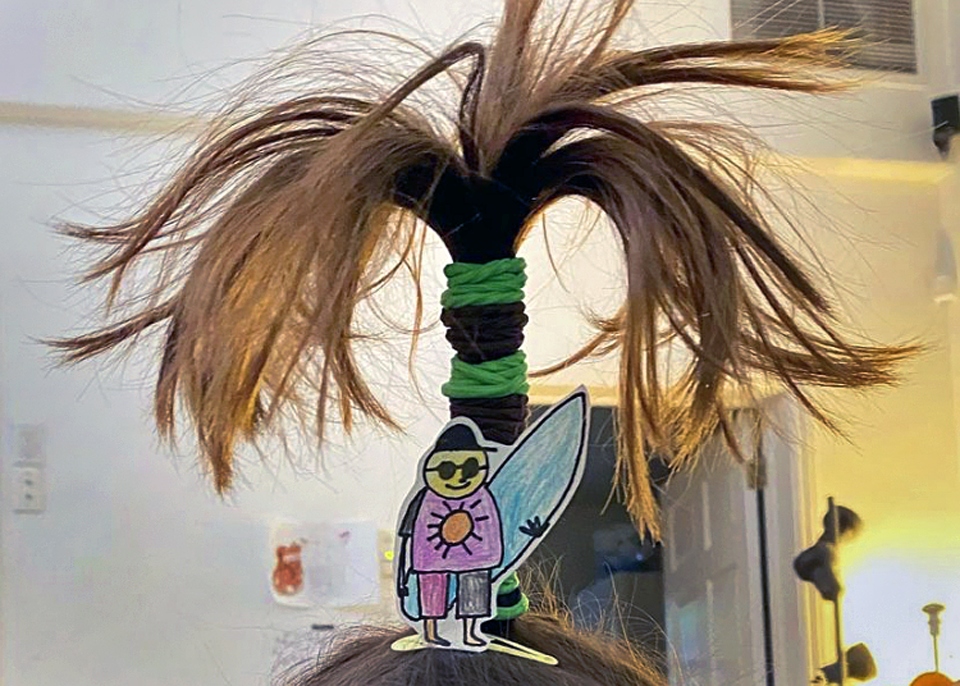The Burnaby school district is standing behind its decision to ban crazy or wacky hair days at local schools.
The spirit days involve students and staff coming to school sporting unusual, often fantastical hair designs and wigs.
Schools have been hosting such events for years, but the district sent out an email to all schools last Monday announcing it was eliminating the hair-themed days as part of its “ongoing efforts to be more mindful of equity and inclusion.”
The email, sent by Beth Applewhite, the district’s vice-principal of equity, diversity and inclusion, said the term “crazy” is disrespectful to people with mental illness.
“Even if we are innocently using the term to refer to something that is different and/or weird, we need to ask ourselves if that is really the message we want to send about hair,” Applewhite said.
She said using the words “wacky” or “crazy” to describe things like braids, twists, afros, beads, ribbons or feathers is also offensive because some local students might wear them on a regular school day.
“While there are some cute and elaborate ideas out there, all too often, the expressions that come out of this are styles that too closely resemble (intentionally or not) actual cultural and ethnic hairstyles,” Applewhite wrote.
Finally, she said wacky and crazy hair days are not inclusive of students and staff who wear hijabs, turbans or patkas as part of a cultural practice.
“Upon reflection and insight, we have realized that this choice does not align with our values,” Applewhite said of the hair-themed spirit days.
She recommended schools replace them with “silly sock days.”
But the district’s decision didn't sit well with some local teachers.
One elementary teacher, who didn’t want her name published, described crazy hair days as “a fun, community-building experience” and is opposed to the district cancelling them unilaterally.
“It just showed up out of nowhere,” she said. “It’s not like we had had a conversation at a staff meeting. It’s not like it had been brought forward to us to say, ‘We need to talk about this as a staff because the district is looking for direction.’ This is top-down from the district.”
The teacher said other alternatives such as “decorate your head day” could have been explored and modifications put in place to ensure the days were inclusive and respectful.
“There’s just been so much cancel culture, and that’s not the society I want to live in,” she said. “I want to live in a society where we can have debates and we can be in disagreement and we can find common ground without necessarily chucking the baby out with the bath water.”
The teacher said the district's decision has generated a "ton of contention” at her school.
Applewhite, however, said this wasn’t a case of cancel culture but rather a decision made after “reports of harm” from students, families and some staff in the school district.
“The days, because of insensitivities and cultural appropriation, etc., had led to some people reaching out to speak to how it was offensive or harmful to them,” she told the NOW.
Schools have let go of many events, including gender-switch days and so-called “slave days,” that don’t support a “culture of belonging,” according to Applewhite, and crazy hair days belong in the same category, she said.
The decision to end the hair-themed spirit day was discussed at a recent meeting of school administrators, Applewhite said.
“In hindsight, we’d like to have more conversation with folks at the school level,” she said, “but I feel and we feel the decision was the right one because of the reports of harm.”
Applewhite said the decision has sparked only one complaint from a school and she will be visiting that school this week for a more fulsome discussion of the issue.
(She would not say which school.)
“This is not a top-down decision that can never be looked at ever again,” Applewhite said. “That’s not what this is, but I have to protect people from being othered, from being harmed, from feeling less than, from feeling oppressed.”
Follow Cornelia Naylor on Twitter @CorNaylor
Email cnaylor@burnabynow.com


